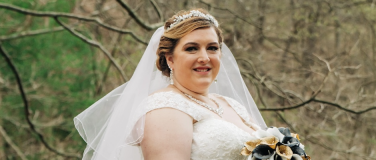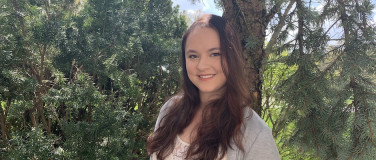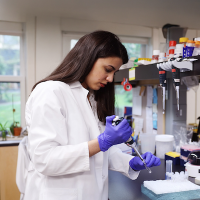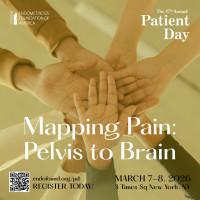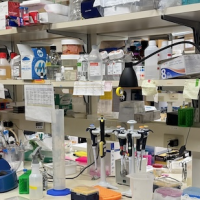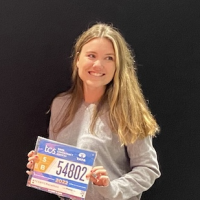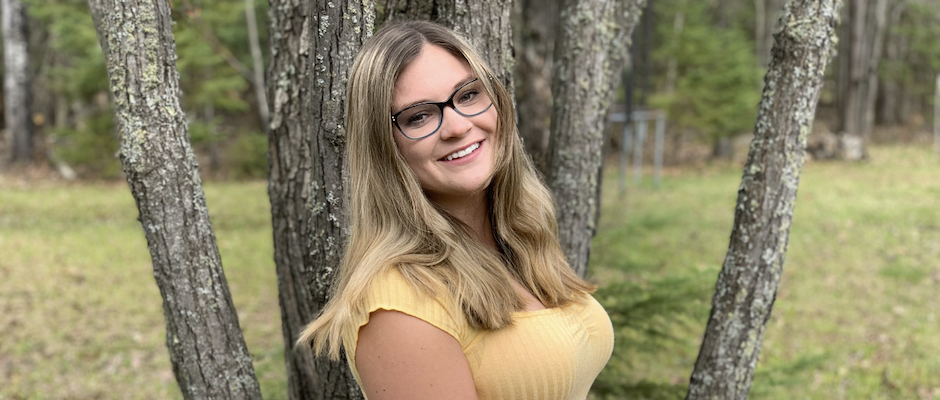
At only 21 years old, I thought it would be important to share my experience with endometriosis. A misconception about this condition is that it only affects older women. In reality, if you are of reproductive age and have a uterus, you could be endo’s next victim.
My name is Anna Ryan, and my story begins as a 15-year-old sophomore in high school. I was a healthy and athletic girl competing in soccer, basketball, and track before I started having chronic lower back pain. It got so bad that I had to quit the sports I loved and miss a lot of school. To make matters worse, I was unable to walk far distances or stand in place for very long. Instead of hanging out with friends or spending time outside like normal high schoolers, I spent the next two years trying to figure out what was wrong with me.
I got x-rays, bone scans, cortisone injections, and acupuncture done, on top of trying many medications. I still did not have an answer. I was so young, scared, and completely hopeless. I became severely depressed. There was even a point in time that I hit rock bottom when I was 17 because I could not bear the physical pain. I was hospitalized in a mental hospital for a few weeks.
Luckily with the support of family and friends, I recovered mentally and regained a little hope. It was time to advocate for myself. I was tired of doctors gaslighting me and not taking me seriously. I started doing my own research. Weeks later, it clicked: I may have endometriosis or a similar condition. Endometriosis just made sense. I knew I had very heavy and painful periods, but I thought it was normal. Most people said I was just overreacting. I also had anemia and fatigue. To this day I wonder why none of my doctors were able to connect the dots. But now I know that this condition is very misunderstood in the medical field.
With this new information, I immediately went to my local gynecologist and begged for an exploratory laparoscopy. He was very hesitant because I was “so young.” When I was 18, he finally agreed to perform the surgery, and sure enough, I was diagnosed with endometriosis. Before surgery he informed me that if he sees any endometriosis, he will simply remove it. It turned out I had endometrial-like tissue behind both ovaries and around my uterus, but too much to remove for that facility.
Having answers was so relieving. However, my relief was short-lived because I was put on Lupron. For those who do not know what Lupron is, it is a chemotherapy drug that reduces your estrogen levels to help stop the endometrial-like tissue from growing or spreading. It is also believed that it can reduce pelvic and back pain. It did seem to help my back pain and prevented me from having periods, which was wonderful, but I am unsure if it was worth it because the side effects were similar to menopause and very hard to deal with—especially being away from home and at college.
I was on Lupron for six agonizing months. Some side effects I experienced were extreme weight gain, night sweats, headaches, hair loss, and hot flashes. When this trial was over, I switched to getting the Depo-Provera birth control shot every three months. The shot, my TENs unit, my heating pad, and my prescription pain relievers were my best friends for the next two years. They made my pain tolerable.
When my chronic pain started getting worse earlier this year, I stopped getting the Depo-Provera shot and I tried Orilissa, a newer medication used to treat endometriosis pain. It did not work, so I quickly ditched that and started taking a high dose of Norethindrone birth control instead to stop my periods. So far, I do not have anything negative to say about it besides that it caused excessive sweating and mood swings when I first started it. Those side effects diminished after a few weeks.
Now I am 21, unemployed with a BS degree, waiting for the day that I can put mydegree to use and be a wildlife biologist moving freely out in the field with minimal pain. Sadly, my chronic low back pain is worse again and does not allow me to work or be very productive. I have also developed new symptoms of bloating and bowel issues. The worst part is that I found out through an MRI that I have signs of adenomyosis. Adenomyosis is when endometrial tissue grows into the muscular wall of the uterus. Therefore, my course of action now is to participate in a pain rehabilitation program three times a week as I wait for endometriosis surgery (robotic-assisted excision) in November. I am on the waitlist to get my surgery earlier, so fingers crossed.
I often say endometriosis has completely ruined my life. It ruined my high school experience, my college experience, my friendships, my relationships, my mental health, my physical health, my hobbies, and my career goals, among other things. But I know I do not have to actually let it ruin my life. Even though this disorder has taken so much from me, it has shown me how much strength and resilience I have. It also has taught me to be more grateful and humble.
There have been so many times I have wanted to give up, and truthfully, I still have those moments. But that makes sense because we are all human. Having health problems is extremely hard especially at a young age. Instead of just sitting and reflecting on how complicating and frustrating my life is, I have decided to use my voice.
I use my voice in public and on social media. I actually have made an Instagram account dedicated to spreading awareness and information about endometriosis. I also use my platform to provide support for fellow endo warriors and create conversations within our large, loving community. Eventually awareness will lead to action.
To anyone struggling with endometriosis, I stand with you. You are not alone. There are millions of people in your shoes and on your side. Do not be too hard on yourself because you are doing the best you can. Endometriosis sucks. It is okay to be frustrated, sad, or angry at your situation. Use those emotions to fight the good fight and strive for better treatment.
To submit this essay, the rules called for a beginning, middle, and end. Is there really an end to any endometriosis journey? Until we find a cure, the rest of all our stories remain unwritten. I may have endometriosis-related pain and fatigue every day, but I have learned how to mentally rise above every obstacle. I am more than my diagnosis. I am a warrior. It is okay to not be okay, as long as you keep fighting.
Thank you for allowing me to share my story. I hope it can inspire other women to use their voice and spread awareness. I also hope I can remind other women that they are not alone in this fight.
Anna Ryan is a recent graduate of University of Wisconsin-Stevens Point. She majored in wildlife ecology and is aspiring to be a wildlife biologist like her Father. Since graduation, Anna has volunteered for the US Forest Service and for University of Minnesota-Duluth. She is unable to work currently because of worsening symptoms but she continues to fight as she attends a pain rehabilitation program before her excision surgery. Anna hopes her story will inspire others to advocate for themselves in the medical field. She also hopes her story will provide relief for women who believe they are alone in their endometriosis battle.
Editor's note: Would you like to contribute to EndoStories? Click here to learn how to submit your work.
*Patient stories submitted to EndoFound.org are the views of the patient and not necessarily those of the foundation. All testimonials are from real patients, and may not reflect the typical patient’s experience, and are not intended to represent or guarantee that anyone will achieve the same or similar results.



